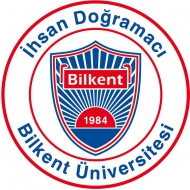All academic research is created and furthered through collaborative human effort. Academic Integrity is about maintaining moral and ethical standards in how all stakeholders are treated during the processes of learning and research. Beyond simply avoiding the temptation to cheat on tests or assignments, it includes an ethical approach to data and collaboration.
- Please read the Bilkent University Policy on “Academic Integrity” (in English): http://w3.bilkent.edu.tr/bilkent/policy-on-conflicts-of-interest-and-commitment-academic-integrity/
The aspects of academic integrity relevant to FAE courses are plagiarism, cheating, and contract cheating (see below).
Plagiarism
Bilkent University defines plagiarism as: “The use of somebody else’s ideas, viewpoints, findings or works in a paper, project, report, or any similar document which is presented as part of a course requirement, without proper acknowledgment of the source.”
For many students avoiding plagiarism is a difficult skill to learn. In your lessons and tutorials your instructor will explain how to avoid plagiarism by summarizing/paraphrasing, quoting/citing, and referencing properly (see also Citation and Referencing). If you need extra help, you can make an appointment for an additional tutorial.
It will, however, be your responsibility to avoid plagiarism in your work. Should the final draft of your assignment still have problems with plagiarism, you will likely receive a very low or failing grade, and, if the plagiarism is considerable, disciplinary action may also be taken according to Bilkent University rules and regulations.
- This “plagiarism spectrum” shows some common misuses of source material in student writing and is from the website of Turnitin (who provide electronic similarity checking services): https://www.turnitin.com/static/plagiarism-spectrum/
Cheating
In-class drafting sessions and presentations are taken under exam-like conditions, and getting help from somebody else or copying from pre-prepared written or recorded materials other than your outline notes and course readings is considered cheating. If you cheat in these ways,
disciplinary action can be taken according to Bilkent University rules and regulations.
Contract Cheating / Ghost Writing / Commissioning
“Ghost writing” is contracting/commissioning another person to produce written or oral coursework for you, and it is another form of cheating. The use of online or informal services to cheat in this way is against university rules, and engaging in it can affect both your disciplinary record / academic transcript, and if undetected can undermine the validity of the qualifications provided by a university.
If your instructor decides that you are not the sole author or creator of work submitted for grading, or that you have had significant and inappropriate help in preparing it, you will likely fail the assignment and/or course and disciplinary action will be taken against according to Bilkent University rules and regulations.
Below is an interesting short film about “Essay Mills” (online contract cheating services) made by 3 final year Broadcast Journalism students from Nottingham Trent University as part of their final assessed project.
